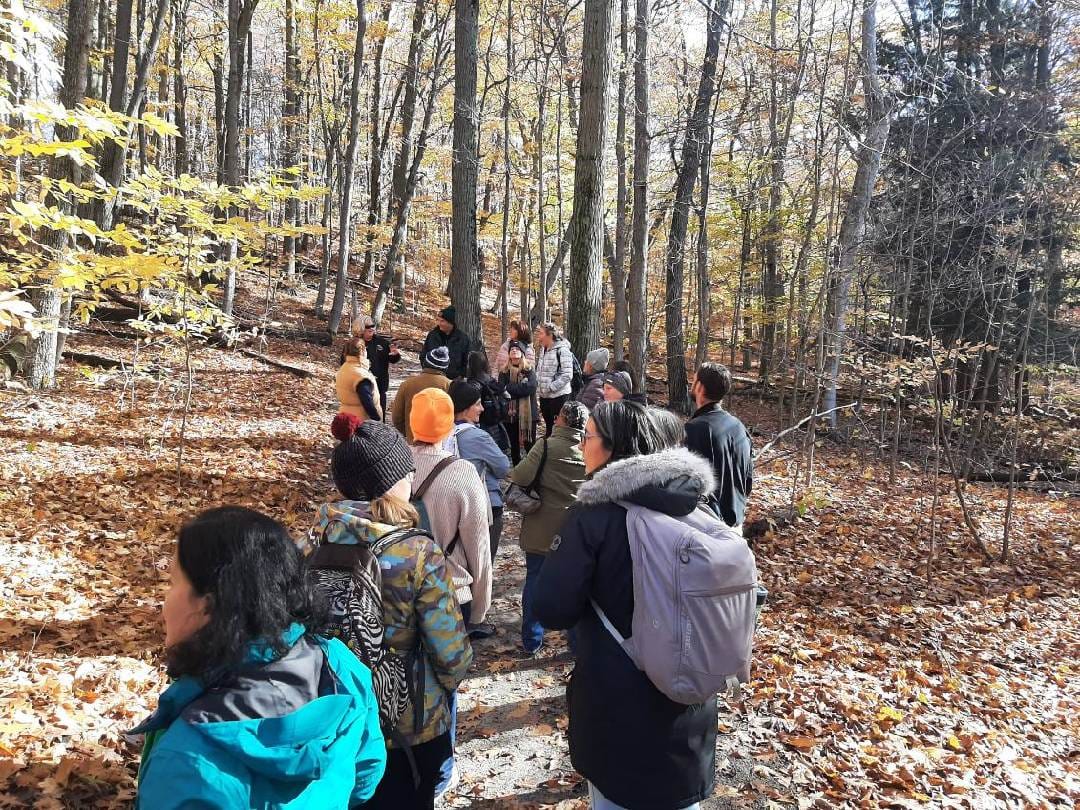State-Wide Network
The SEMIS Coalition is a regional hub for the Great Lakes Stewardship Initiative

Attendess at the 2023 Place-based Education Conference take a feild trip to Lake Michigan.
The Great Lakes Stewardship Initiative started in 2007 to support place-based education throughout Michigan, with a focus on experiential learning opportunities based in regional hub organizations. The Southeast Michigan Stewardship Coalition (SEMIS) fulfills that role for our region.
Overview of the Great Lake Stewardship Initiative
Across Michigan, the Great Lakes Stewardship Initiative uses three key strategies in this state-wide work:
- Place-Based Education: Place-based education uses the local community and environment as an important context for teaching and learning. Students venture out of their classrooms, and take part in hands-on, real-world inquiry and problem solving related to local stewardship needs. As they learn, they work with each other—and with their teachers and community partners—to improve their community and the environment.
- Sustained Professional Development: Powerful learning and skillful teaching go hand in hand. Place-based education requires teachers to have a deep understanding of both content and pedagogy, and to connect their teaching to the curricular goals of their school. Through a network of regional hubs, we work in the service of teachers, offering them ongoing professional development opportunities that reflect best practices in adult education. One important outcome of this sustained professional development is a set of strong collegial relationships among teachers and between those teachers and other members of the community.
- School-Community Partnerships: The best partnerships are those that are mutually beneficial. A school is part of a community, not separate from it. Over time and in some places, the connection between schools and their communities has been broken. We restore that connection through intentional partnerships that bring expertise and resources in the community to bear on the education of young learners. This integrated approach pays dividends. Students benefit because they come to see themselves, and are viewed by others, as valuable assets to the community. Teachers benefit because they receive the support they need to offer meaningful learning opportunities to their students. Schools benefit because they can realize their goal of providing a more holistic, relevant education to children. Community organizations benefit because they accomplish a part of their outreach mission while contributing significantly to the education of young people. Learn more here: https://greatlakesstewardship.org/connecting-education-and-environment/
